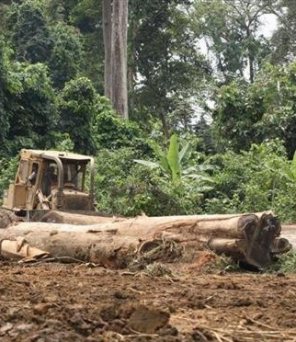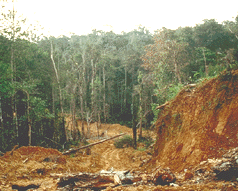LATEST NEWS
Famine threatens Australia's gentle sea cows
An underwater famine is posing the latest threat to one of Australia's most endangered marine species, the dugong, which lives entirely on sea grass. At least 100 have starved to death in recent months and many more are likely to follow in the absence of their only food source.
Torrential rain and storms, including Cyclone Yasi earlier this year, have destroyed vast swathes of sea grass from northern Queensland to the New South Wales border. More than 1,000 miles of coastline which once provided the perfect habitat for these oddly shaped and gentle creatures are now denuded of the dugong's natural foodstuff.
Oil exploration under Arctic ice could cause 'uncontrollable' natural disaster
Any serious oil spill in the ice of the Arctic, the "new frontier" for oil exploration, is likely to be an uncontrollable environmental disaster despoiling vast areas of the world's most untouched ecosystem, one of the world's leading polar scientists has told The Independent.
Oil from an undersea leak will not only be very hard to deal with in Arctic conditions, it will interact with the surface sea ice and become absorbed in it, and will be transported by it for as much as 1,000 miles across the ocean, according to Peter Wadhams, Professor of ocean physics at the University of Cambridge.
The interaction, discovered in large-scale experiments 30 years ago, means that the Arctic oil rush, which was given a huge boost last week with a $3.2 billion (£1.9bn) investment from Exxon Mobil, is likely to be the riskiest form of oil exploration ever undertaken, said Professor Wadhams, who is a former director of Cambridge's Scott Polar Research Institute.
Monster' wildfire destroys nearly 500 homes in Texas
A roaring wildfire raced through rain-starved farm and ranchland in Central Texas, destroying nearly 500 homes during a rapid advance that was fanned in part by howling winds from the remnants of Tropical Storm Lee.
At least 5,000 people were forced from their homes in Bastrop County about 25 miles (40 kilometers) east of Austin, and about 400 were in emergency shelters, officials said.
Naturalist Stephen Moss investigatesIt's been one of the few "good news" stories of the summer: otters can now be found in every English county.
This elusive mammal has made an extraordinary comeback since the dark days of the 1970s, when it almost went extinct in England and Wales and could only be found in a few remote corners of Scotland. Nowadays otters can be seen on rivers all over Britain, including such unexpected places as the River Tyne, in the very centre of Newcastle.
The reason for the otter's post-war decline was simple: pollution, coming on top of decades of persecution. The Tyne was the worst offender, with millions of gallons of untreated sewage pouring into the river every single day, turning it into a vast septic tank.
In efforts to make quick and symbolic gains in Europe's otherwise failed policies to curb climate gas emissions, environmental and anti-globalisation politicians are aiming at Africa's few economic success stories. Campaigns to buy locally produced food and travel to local destinations particularly hit out against African products.
Consumers in Europe are again growing more environmentally conscious and are willing to use their purchasing power to assist in what is widely seen as our era's most pressing problems - the overspending of energy and global warming. Meanwhile, European politicians have been those pressuring strongest to gain support for the Kyoto Protocol while having totally failed to lower emissions of climate gases in their own countries. In every country, emissions have steadily increased.
Populist solutions that are to satisfy costumers, politicians and the European industry alike are therefore surfacing all over Africa's neighbour continent and the main market of its products. And the solutions seem neat and nice - easy to understand and with the potential of creating more work locally. Even the industry starts propagating these solutions.
Populist solutions that are to satisfy costumers, politicians and the European industry alike are therefore surfacing all over Africa's neighbour continent and the main market of its products. And the solutions seem neat and nice - easy to understand and with the potential of creating more work locally. Even the industry starts propagating these solutions.
The Mangroves
an undervalued ecosystem
an undervalued ecosystem
Historically classified "unhealthy wastelands" or "useless swamps" by development-eager authorities and businesses, the mangrove forests actually are one of the most fascinating resources in tropical Africa. The trees manage to live on the edge between flooding rivers, tidal waves intruding with salt water and the drylands, where they create new land and environs rich in fish, birds, wood and other resources. Finally, their value is being discovered.
The mangrove ecosystem
Precise data on global mangrove resources are scarce as this unique ecosystem has been studied surprisingly little. However, a major part of Africa's subtropical and tropical coastline is dominated by mangroves. Estimates are that there are some 16 million hectares of mangrove forests worldwide.The general distribution of mangroves mostly corresponds to that of tropical forests, but extends somewhat further north and south of the equator, sometimes beyond the tropics. However, over the past several decades, the area covered with mangroves globally has increasingly been reduced as a result of a variety of human activities, such as over-harvesting, freshwater diversion and conversion to other uses.
There are two distinct bio-geographic zones of mangroves in the world: those of West Africa, the Caribbean and America; and those on the eastern coast of Africa, Madagascar and the Indo-Pacific region. While the first - the Atlantic region - contain only ten tree species, mangroves of the Indo-Pacific are richer, containing some 40 tree species (excluding palms).
Large-scale logging underway in DR Congo
afrol News, 9 March -New decisions by the Congo Kinshasa government, lifting a 9-year moratorium, mean that up to 25 million hectares of rainforest could be sacrificed for industrial exploitation.
Back in 2002, facing the chaos of the logging industry sector in Congo Kinshasa (DRC), government decided to enforce a moratorium on new forest titles and concessions. But as the state proved unable to control the situation on the ground, the moratorium was immediately and regularly violated.
 |
Industrial logging in the Congo Basin is a main source of deforestation |
Environmental groups say they are "deeply concerned" about the recent announcement by Congolese Environmental Minister José Endundo that government has legalised 15 additional logging titles in the Congo rainforest. In addition, it seems there are also plans to lift the current moratorium on industrial logging expansion.
"In the long run, up to 40 percent of the Congo rainforests could be sacrificed for industrial exploitation," the environmental group Greenpeace warns.
The concern arose after Minister Endundo on 29 January announced changes to the restrictive 2002 logging polices, addressing a situation of warfare and smuggling of natural resources. The Kinshasa government is now reacting to a normalisation of the situation in the vas country."In the long run, up to 40 percent of the Congo rainforests could be sacrificed for industrial exploitation," the environmental group Greenpeace warns.
Back in 2002, facing the chaos of the logging industry sector in Congo Kinshasa (DRC), government decided to enforce a moratorium on new forest titles and concessions. But as the state proved unable to control the situation on the ground, the moratorium was immediately and regularly violated.
Forests and deforestation in Africa
- the wasting of an immense resource
afrol News - Except for the Congo Basin, Africa's frontier forests have largely been destroyed, primarily by loggers and by farmers clearing land for agriculture. In West Africa, nearly 90 percent of the original moist forest is gone, and what remains is heavily fragmented and degraded. Today, West African unspoiled forests are restricted to one patch in Côte d'Ivoire and another along the border between Nigeria and
- the wasting of an immense resource
 |
Deforestation of African rain forest |














